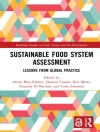This fascinating and unique history reveals the major influence of the Oxford Chemistry School on the advancement of chemistry. It shows how the nature of the University, and individuals within it, have shaped the school and made great achievements both in teaching and research. The book will appeal to those interested in the history of science and education, the city of Oxford and chemistry in general. Chemistry has been studied in Oxford for centuries but this book focuses on the last 400 years and, in particular, the seminal work of Robert Boyle, Robert Hooke, and the proto- Royal Society of the 1650’s. Arranged in chronological fashion, it includes specialist studies of particular areas of innovation. The book shows that chemistry has advanced, not just as a consequence of research but, because of the idiosynchratic nature of the collegiate system and the characters of the individuals involved. In other words, it demonstrates that science is a human endeavour and its advance in any institution is conditioned by the organization and people within it. For chemists, the main appeal will be the book’s examination of the way separate branches of chemistry (organic, physical, inorganic and biological) have evolved in Oxford. It also enables comparison with the development of the subject at other universities such as Cambridge, London and Manchester. For historians and sociologists, the book reveals the motivations of both scientists and non-scientists in the management of the School. It exposes the unusual character of Oxford University and the tensions between science and administration. The desire of the college to retain its academic values in the face of external and financial pressures is emphasized.
表中的内容
Chapter 1: An Outline of the History of the University of Oxford with Reference to its Chemistry School;
Chapter 2: From Alchemy to Air Pumps: the Foundation of Oxford Chemistry to 1700;
Chapter 3: The Eighteenth Century: Chemistry Allied to Anatomy;
Chapter 4: Chemistry Comes of Age: the 19th Century;
Chapter 5: Research as the Thing: Oxford Chemistry 1912-1939;
Chapter 6: Interlude: Chemists at War;
Chapter 7: Recent Times 1945-2005: a School of World Renown
关于作者
Jack Morrell has been an Honorary Visiting Lecturer in History of Science since 1992, and has had connections with Leeds HPS since 1967. Between 1964 and 1994 he was first Lecturer, then Reader in History of Science at the University of Bradford. He has been a Visiting Professor at the University of Pennsylvania (1970), a Supernumerary Fellow at Brasenose College, Oxford (1987), and a Leverhulme Emeritus Fellow (1995-97). Between 1978 and 1981 he was Vice-President of the British Society for this History of Science, and in 1982 he was elected President. He was elected a Fellow of the Royal Historical Society in 1984.












